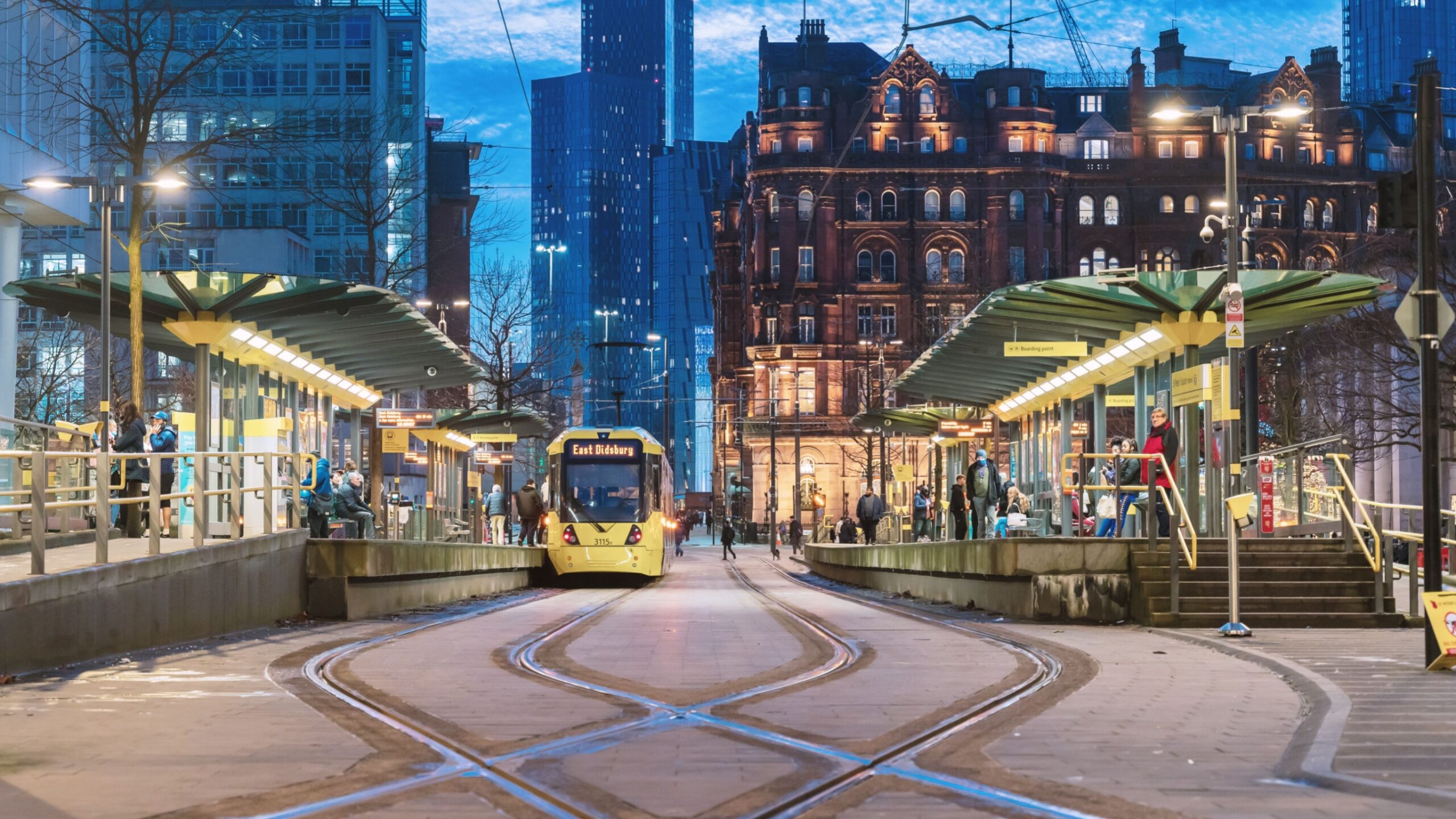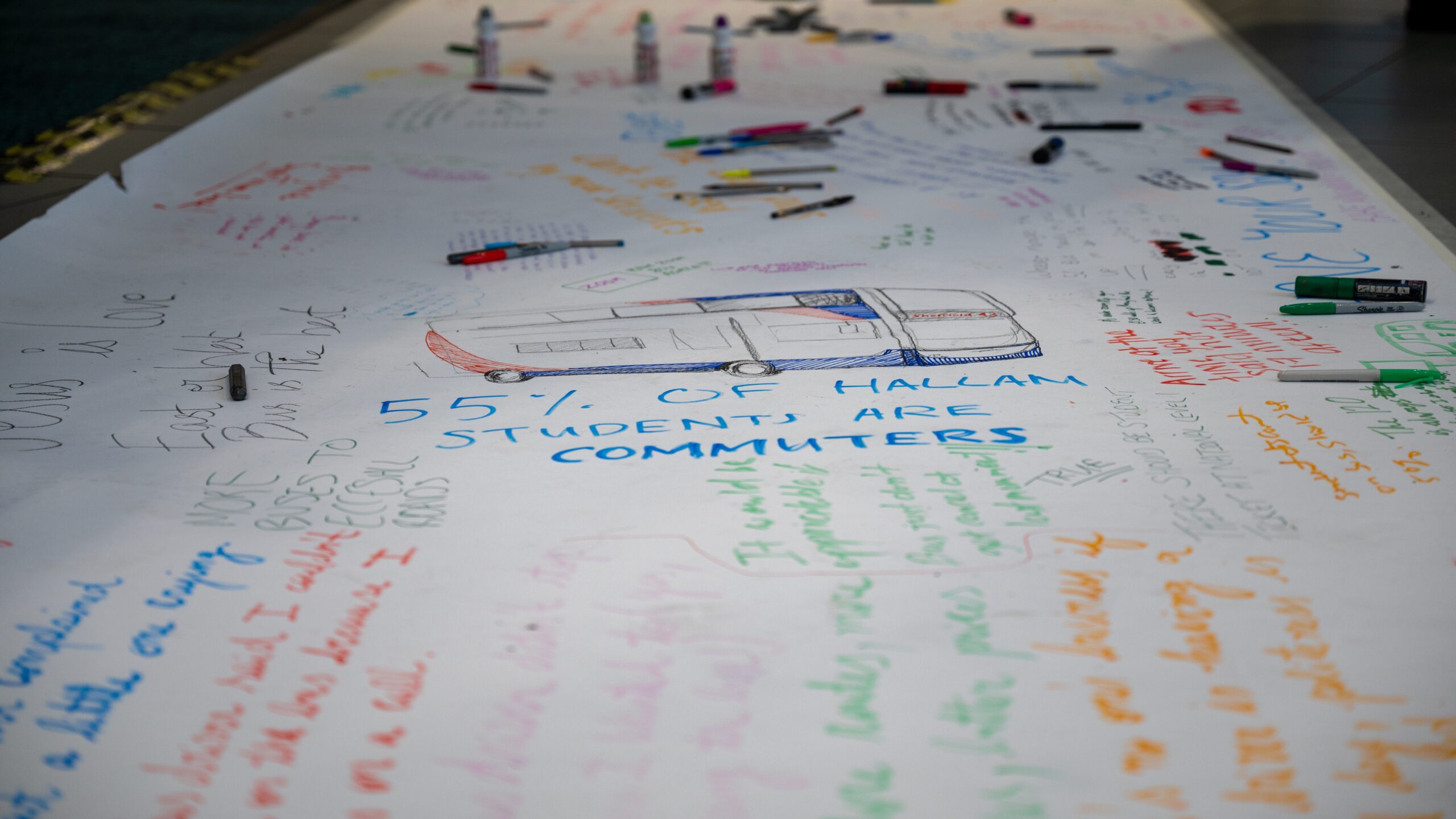If you have been to Greater Manchester in the last few years, you will have noticed that more and more yellow buses have started to appear.
The Bee Network fully launched across the region on the 5th January 2025 – the yellow bus takeover is now complete.
When all buses in the region became a part of the Bee Network – the integrated transport network for Greater Manchester – this was a significant moment for the city’s devolution journey. It became the first place in England, outside of London, to have buses back under public control.
One of the Greater Manchester Student Partnership’s (GMSP) priorities is to improve students’ experience of transport across the region, the launch of the Bee Network is a key opportunity to make that happen.
Institutions often define commuters differently and in Greater Manchester we already have a large proportion of students “traditionally” commuting. However traditional residential students are living further away from campus due to rising costs and are more reliant on public transport to get to classes.
The GMSP has been thinking about how we can use the Greater Manchester Combined Authorities’ powers to support commuter students in their widest of definitions.
A backdrop of devolution
Since the coalition government of the early 2010s, devolution has been growing and Greater Manchester and the West Midlands have been the guinea pigs of the plan.
Putting buses back under public control was a large part of the devolution deals and settlements, with the Bus Service Act 2017 being introduced so regions can take back control of buses.
For context, in the 1980s bus travel in the UK was deregulated – anyone with a licence and a bus could run any bus service they wanted. The act allows Metro Mayors and in the future local authorities to franchise bus services. In doing so they can set up routes, tickets and costs for bus operators to bid for.
Andy Burnham, the mayor of Greater Manchester, got the ball rolling on this quickly.
In the 2024 general election, Labour had promised more devolved powers for regional mayors that have already been elected. In December, the government announced the Better Buses Bill which will give more powers to local authorities to own their own bus companies.
Students use buses to get around their city but commuter students are not just reliant on buses, they are also reliant on trams and trains and other forms of transport.
Building a student city
The new bus fare cap rising will be a further strain on student cost of living and inevitably impact on student engagement on campus – for traditional commuters and residential students. The benefits of a mayor and devolved transport powers mean that isn’t the case here, fares are staying put at £2.
As of last month, if you “tap in” on the tram and the bus with your contactless card, it all falls under the same ticket.
This again is welcomed by GMSP, but this does not reduce the price of students who have to travel on both modes of public transport.
This improves accessibility but not necessarily affordability.
If they take multiple journeys a week on both a tram and a bus, it will cost £41. There is currently no student rate on trams or on the “tap in” system that is about to be introduced.
From December 2026 until December 2028, the Bee Network will gain control of eight major commuter train lines. Greater Manchester could then become the best city for student public transport in the country, but only if Transport for Greater Manchester (TfGM), universities and student unions work together.
Busy making promises
The GMSP has been advocating for cheaper, more reliable transport with the mayor and TfGM.
In 2022, officers from GMSP wrote to the mayor asking for a £1.50 bus single for all students. The mayor responded by saying that although he wanted to do something like this, until he had full control on the Bee Network, that would not be possible.
In the mayor’s 2024 mayoral election manifesto, he announced at a mayoral hustings for students that he was to introduce a 18-21 monthly half price bus pass, bringing down the cost from £80 to £40.
This was welcomed by GMSP to an extent, but we recognised that a lot of students, especially commuter students, do not fall into this category. And termly student tickets that are already on offer would work out cheaper for most students anyway.
Since the Bee Network fully launched, we have seen no sign of this offer appearing.
Student transport agenda
The big question is, how can the universities, student unions and transport authorities work together to make life better for commuter students?
Whilst we’re lucky in Greater Manchester to have a forum to meet with and discuss things like patronage, pricing and safety, getting all partners into the room is not as easy.
We have big plans to make Greater Manchester the best place to be a student, and to do that we need to think big with things like creating a student living and staying strategy for the city region.
This would bring together all these partners to create a long-term strategy for students in the city region, with one of themes being transport. Having these three partners working together is key for the success of any long-term transport strategy in the region.
TfGM holds a lot of the power, including data on patronage and which routes students are using the most. Universities hold influence and potential financial influence, which could be beneficial for introducing new routes and discounting prices for students.
Universities have a lot of data about students, especially on where they live, and that information could be used to target key routes for commuter students. And student unions are important as the voice of students.
One of the mayor’s key aims for students in Greater Manchester is retaining talent. An element of this is making the Greater Manchester universities more attractive for potential students from Greater Manchester. If you want to make local universities more desirable for commuter students, improving the reliability, access and price of transport would go a very long way.
Whilst Greater Manchester has a unique opportunity to improve the commuter student experience, more devolution is on its way. In the meantime, the more connections and collaborations that exist between local authorities, universities, student unions and transport providers, the better.
Collaboration is key to making these ideas a reality and in building transport strategies in university towns and cities, commuter students need to be at the heart of decision making.
This blog is part of our series on commuter students. Click here to see the other articles in the series.


